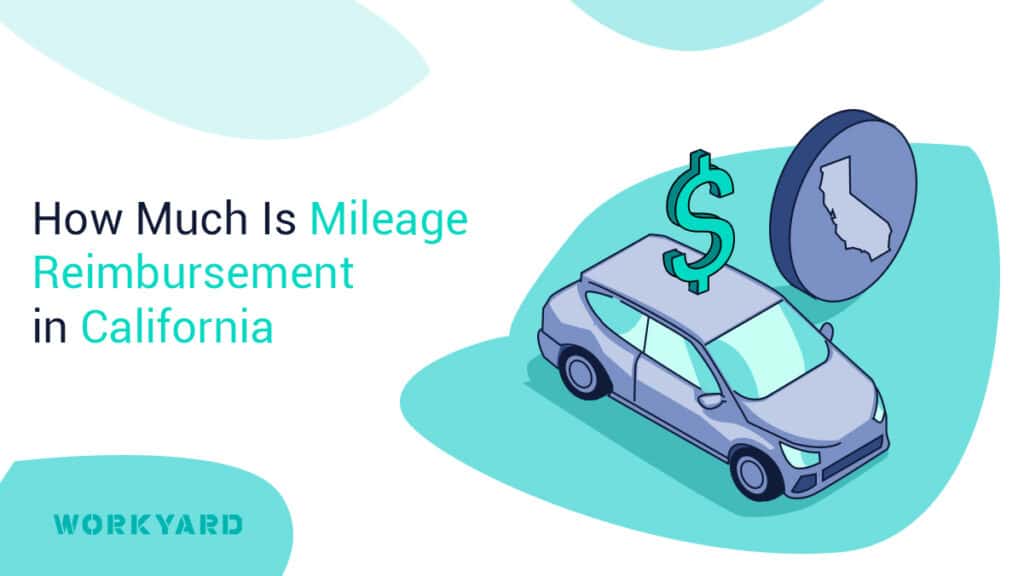This question is about Employee Mileage Reimbursement and How To Calculate Mileage Reimbursement .
How Much Is Mileage Reimbursement in California
Mileage reimbursement is when an employer compensates employees for any business-related travel they do in their personal vehicle. In 2023, California businesses can expect to pay employees $0.655 per business mile.
The IRS standard mileage reimbursement rate is adjusted annually based on the cost of operating a vehicle. Included in these costs are things like vehicle depreciation, car insurance, road tax, general maintenance, gas, and more.
Let’s go over what does and does not constitute business-related driving in California.
Work-related driving refers to any mileage driven between two places of business, meaning that, driving from home to work or vice versa does not require compensation.
The following types of business travel do fall under the mileage reimbursement category:
- Business trips
- Meetings with customers or prospective clients
- Business-related errands
- Delivery trips on behalf of an organization
Organizations generally keep track of these miles by requesting that their employees provide receipts or records of their mileage expenses to receive accurate compensation. Businesses can also opt to give employees an allowance each month for business mileage but using the IRS standard rate is more common.
At the federal level, there aren’t any laws that require employers to provide mileage reimbursement, though most organizations still do. However, some states including California, Massachusetts, and Illinois require compensation for the miles an employee drives on behalf of a company.
Although mileage reimbursements based on the federal mileage rate are a requirement in states like California, they’re considered tax-deductible. Employees who receive mileage-related compensation won’t be taxed, as long as the organization is not paying more than the annual federal mileage rate.

References
- 1
California State Controller’s Office. “2023 Mileage Reimbursement Rate For Use Of Personal.” Accessed on June 14, 2023.
- 2
Workyard. “Employee Mileage Reimbursement In 2023: Rules, Rates & Tools.” Accessed on June 13, 2023.